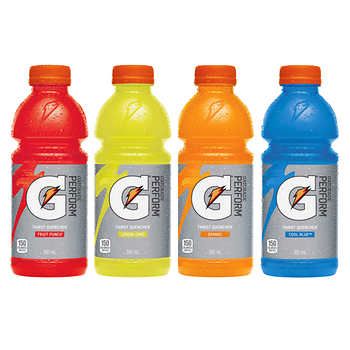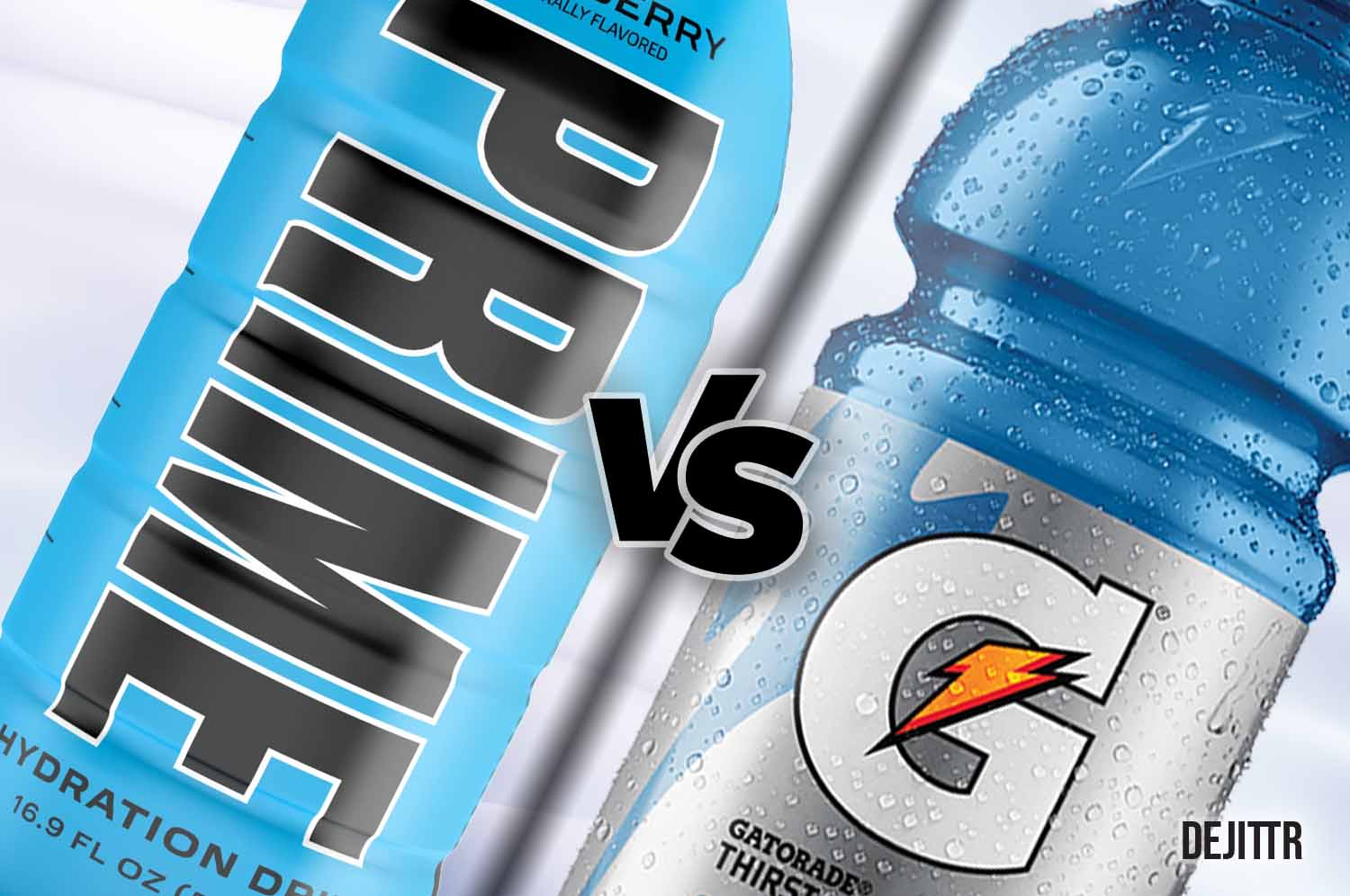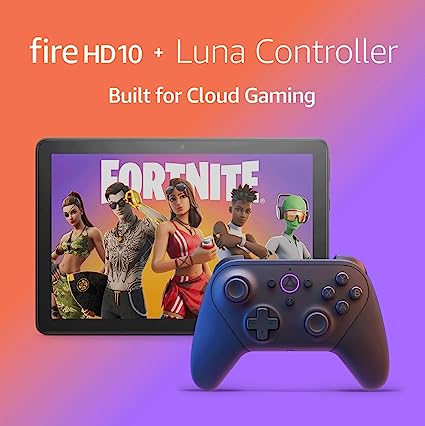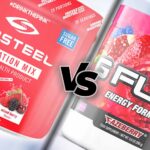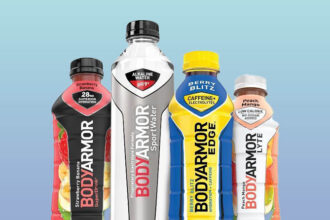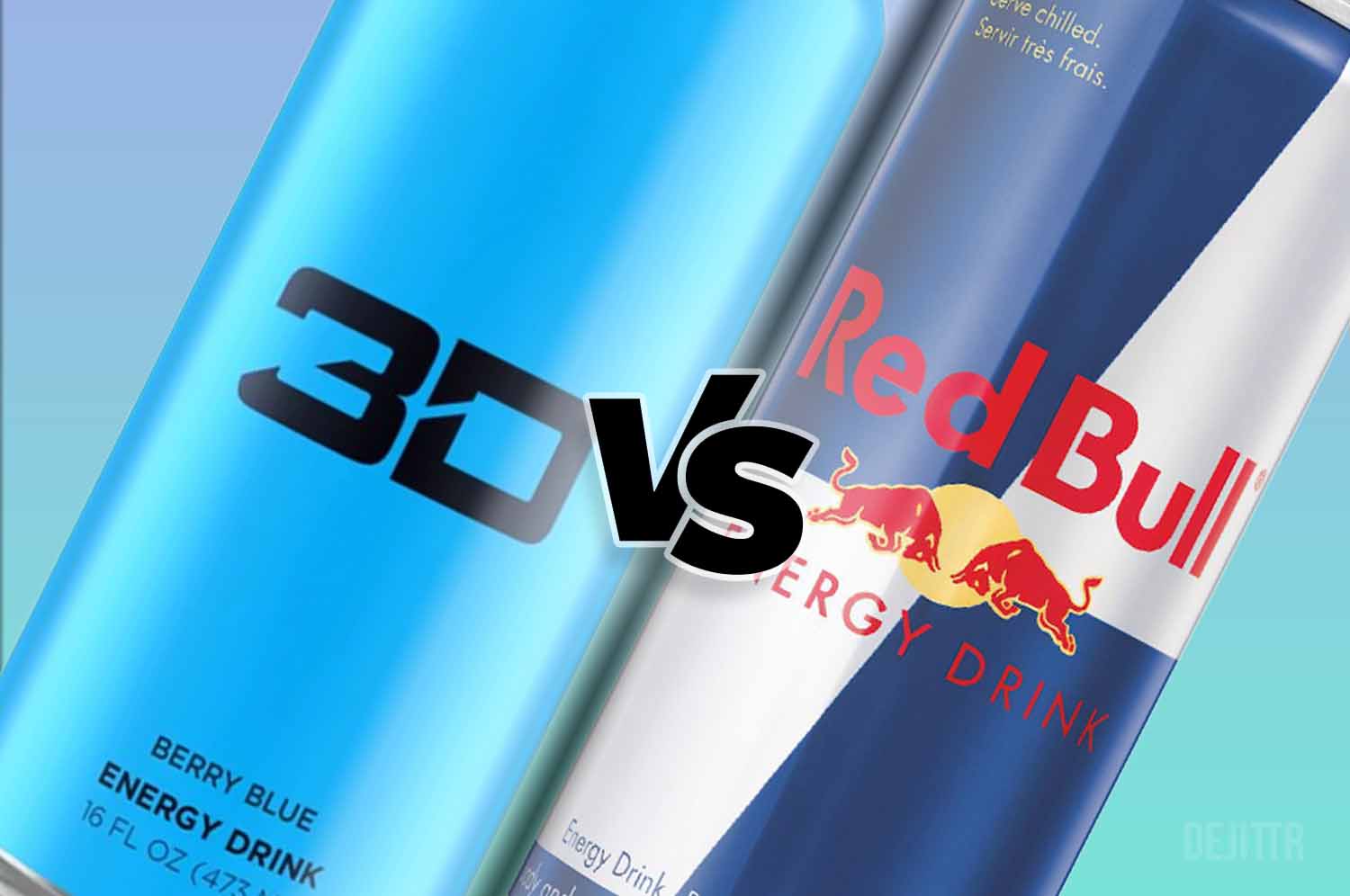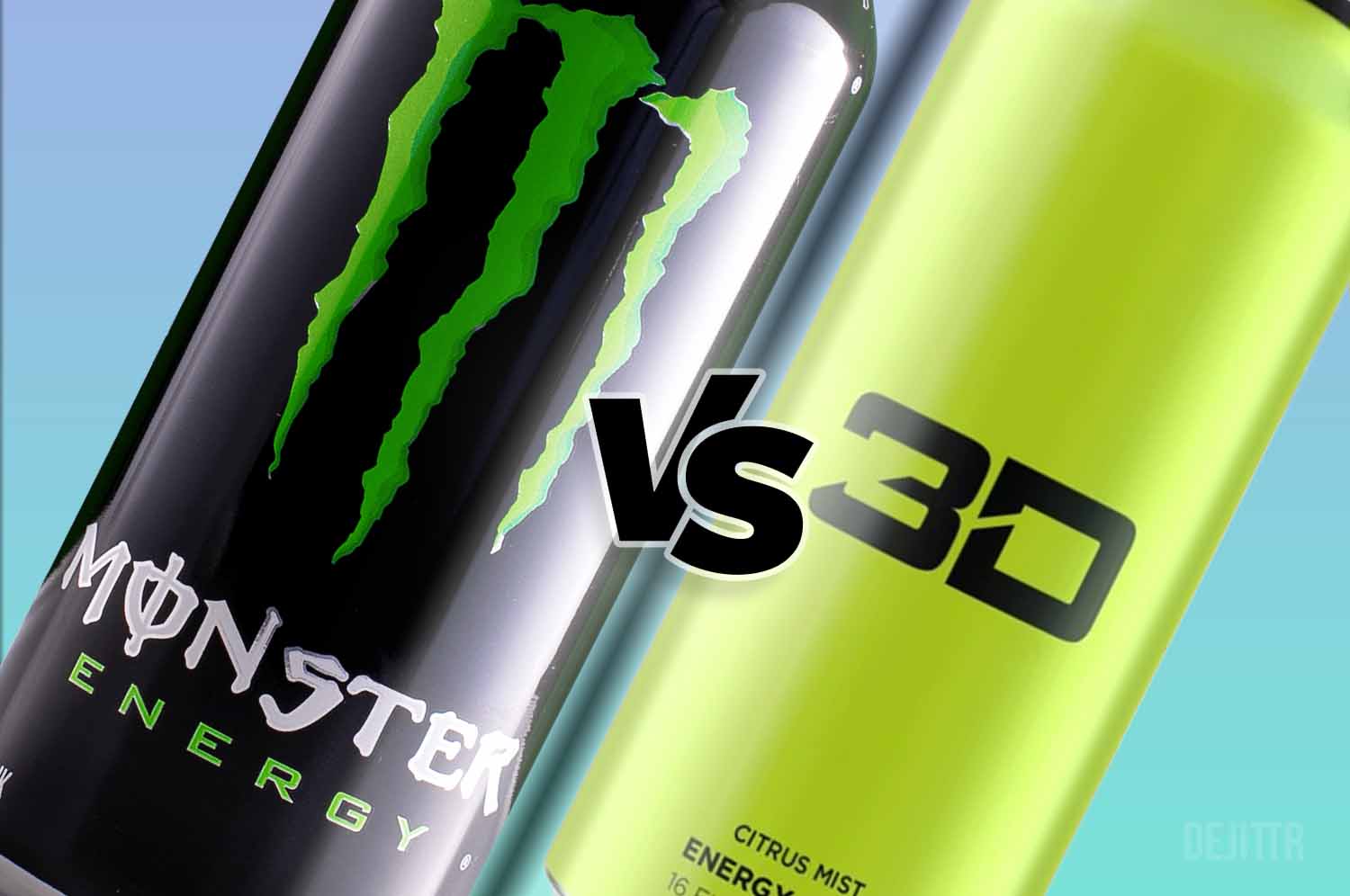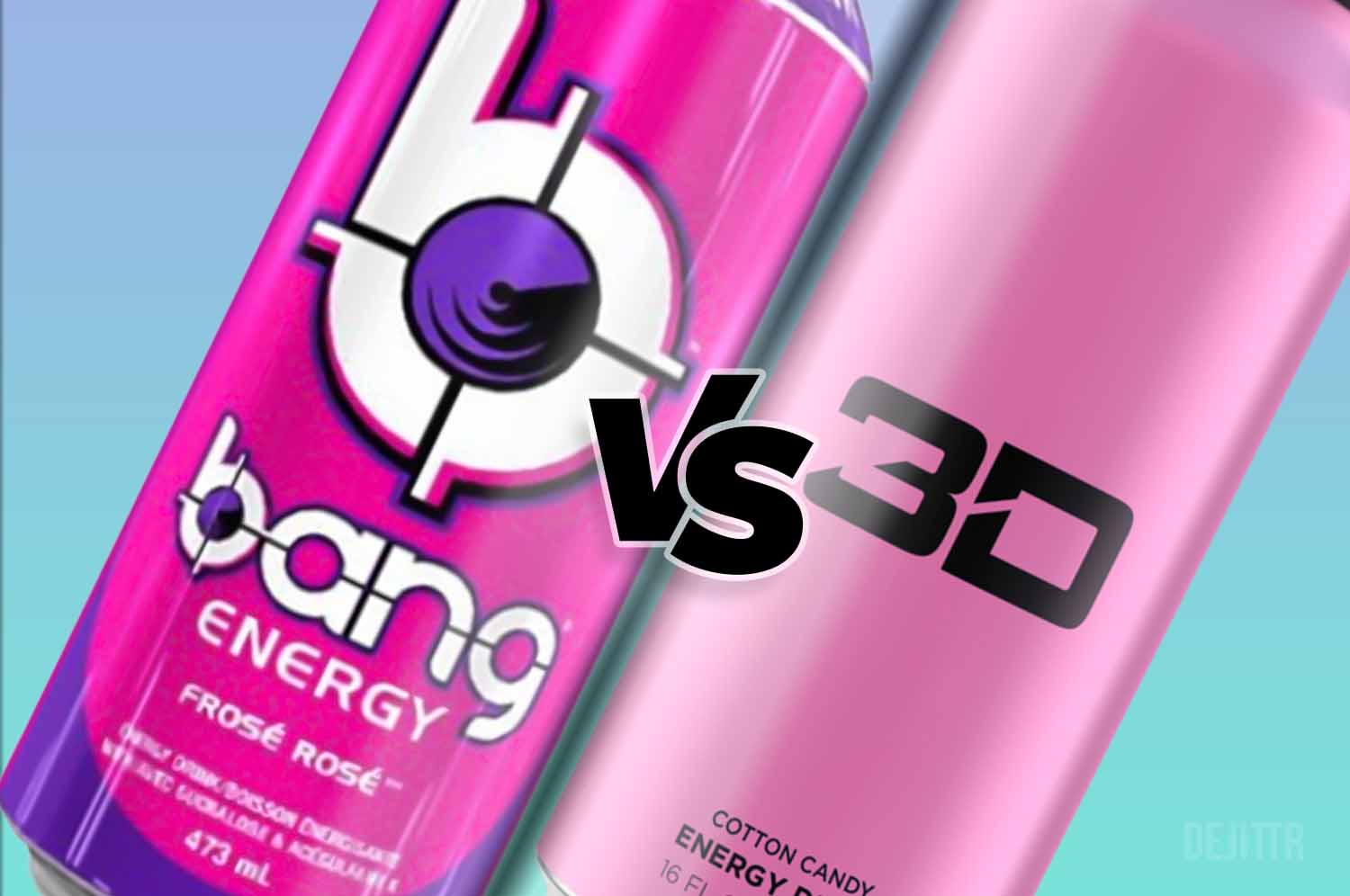In one corner, we have Gatorade, the iconic thirst-quencher that’s seen more locker rooms than a janitor’s mop. In the other, Prime Hydration Drink, the new kid on the block, strutting its stuff and promising hydrating results.
But when the sweat starts pouring, which one truly reigns supreme? Forget brand loyalty and neon-colored nostalgia; we’re here to dissect these beverages down to their molecular mojo.
Sodium is crucial for rapid rehydration, especially in sports settings. Gatorade’s higher sodium content makes it more effective in this regard. On the other hand, Prime Hydration’s low sodium and high potassium content may not be as effective for rapid rehydration.
Gatorade vs. Prime Hydration: Overview
| Point of Comparison | Gatorade | Prime Hydration |
| Sugar | 36g Based on 20 Fluid Ounces | 2g Based on 16 Fluid Ounces |
| Launched | Developed in 1965 | January 2022 |
| Flavors | Over 22 flavors (As of Jun-2022) | 10 Flavors (As of Sept-2023) |

Gatorade vs. Prime: The Role of Electrolytes in Hydration
Hydration is critical to sports performance, general well-being, and even cognitive function. When it comes to staying hydrated, the market offers many options, from plain water to specialized sports drinks.
Electrolytes are minerals that carry an electric charge and play a vital role in maintaining fluid balance, nerve function, and muscle contractions.
Sodium and potassium are the primary electrolytes lost through sweat during physical activity.
- Gatorade’s Electrolyte Profile: Contains 336 milligrams of sodium and 72 milligrams of potassium.
- Prime Hydration’s Electrolyte Profile: Low in sodium(10 mg) and high in potassium.
The Cloud Gaming Platform You Didn’t Know You Needed! (Learn More About It Here)
Gatorade vs. Prime: Sugar Content & Its Role in Hydration
Sugar, particularly glucose, can accelerate the absorption of water and electrolytes in the gut, making it beneficial for rapid rehydration in sports settings.
- Gatorade’s Sugar Content: Contains more sugar, which can be beneficial for rapid rehydration.
- Prime Hydration’s Sugar Content: Contains only 2 grams of sugar.
Sugar Analysis: While Gatorade’s higher sugar content can be advantageous for athletes needing quick rehydration, it may not be suitable for those on a calorie-controlled diet.
Prime Hydration, with its low sugar content, may be a better option for those watching their caloric intake but may not provide rapid rehydration.
Many people, including kids, love the taste of Prime. Many sports drinks have to balance out the taste of their beverage due to the high amounts of sodium(salt). See our Poll below.
Poll Results For: Do You Prefer The Taste of Prime Hydration or Gatorade?
60% of people prefer prime Hydration.
40% of people enjoy Gatorade.
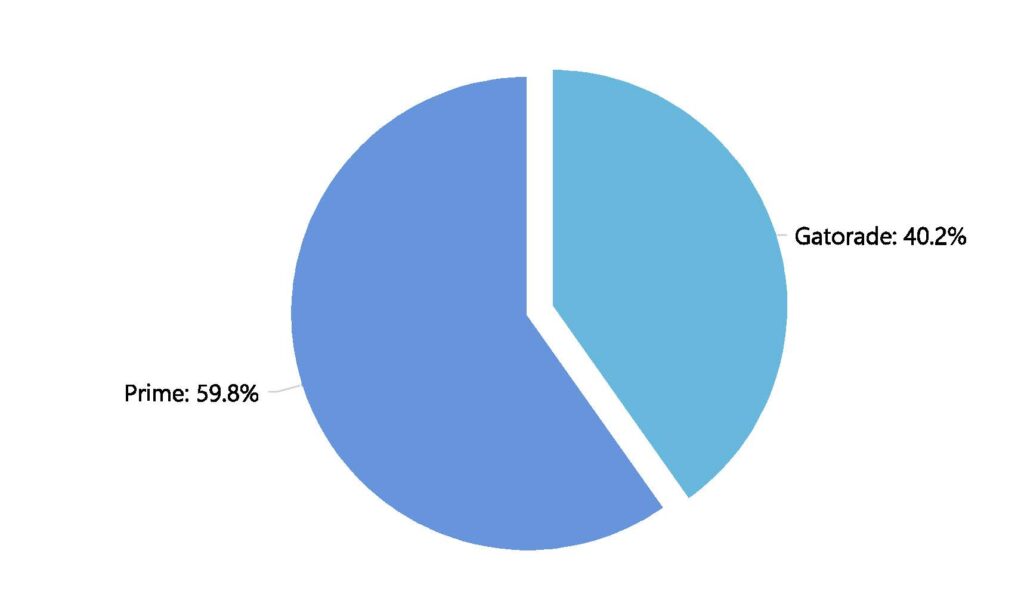
Gatorade vs. Prime: Effectiveness for Hydration
The effectiveness of a hydration solution is determined by its ability to quickly and efficiently restore fluid and electrolyte balance.
- Gatorade’s Effectiveness: Offers a balanced profile of electrolytes and the option for a sugar-free variant, making it versatile for different hydration needs.
- Prime Hydration’s Effectiveness: Criticized for its low sodium content, which is a key player in effective hydration.
Hydration Analysis: Gatorade seems to offer a more balanced and effective hydration solution, especially for athletes or those engaged in strenuous physical activity. Prime Hydration falls short in this aspect due to its low sodium content.
Gatorade vs. Prime Hydration: Nutrition Facts
Gatorade Nutrition:
Here’s a chart that shows the nutrition content in a 20-ounce bottle of Gatorade (G Thirst Quencher):
| Nutrition | Content |
| Calories | 140 |
| Fat | 0 g |
| Fiber | 0 g |
| Sodium | 270 mg |
| Potassium | 80 mg |
| Protein | 0 g |
| Sugar | 34 g |
| Carbohydrates | 36 g |
As per USDA dietary guidelines, you should consume no more than 36 g (9 teaspoons) of sugar a day if you are an adult man. For adult women, the consumption should be no more than 25 g.
A bottle of Gatorade either meets or crosses that suggestion.
When it comes to sodium, you should consume no more than 2,300 mg of sodium in a day as per the USDA guidelines. So with one bottle of Gatorade, you get around 10% of the suggested sodium intake.
In terms of Potassium, you get about 2% of your suggested daily intake.
Prime Hydration Nutrition:
Here are the nutrition facts for Prime Hydration (Serving Size: 473 ml)
| Nutrition | Content |
| Calories (amount per serving) | 20-25 g |
| Total Fat | 0 g |
| Total Carbohydrate | 4 g |
| Protein | 0 g |
| Sodium | 10 mg |
| Cholesterol | 0 mg |
Gatorade vs. Prime Hydration: Ingredients
Gatorade Ingredients:
Here are the ingredients of Gatorade (In a bottle of Lemon-Lime Gatorade G Thirst Quencher):
Water (about 90%), Sugar, Dextrose, Monopotassium phosphate, Gum arabic (an emulsifier and thickening agent), Glycerol ester of rosin (stabilizer or thickening agent), Natural Flavor, Sodium citrate (salt found in citric acid), Yellow 5 food dye (other flavors may contain other dyes and flavorings), Citric acid, Salt.
| Ingredient | Function in Beverage | Effects on Body |
|---|---|---|
| Water | Solvent, hydration | Essential for life, hydration |
| Sugar | Sweetener, energy source | Quick energy but can lead to weight gain and metabolic issues if consumed in excess |
| Dextrose | Sweetener, energy source | Similar to sugar; quick source of energy |
| Monopotassium phosphate | Electrolyte, acid regulator | Helps with muscle function, but excessive amounts can affect kidney function |
| Gum arabic | Emulsifier, thickening agent | Generally safe; used as a fiber source in some settings |
| Glycerol ester of rosin | Stabilizer, thickening agent | Generally recognized as safe; limited data on long-term effects |
| Natural Flavor | Flavoring | Effects can vary; generally recognized as safe |
| Sodium citrate | Flavor enhancer, preservative | Can help with muscle function but excessive amounts can lead to electrolyte imbalance |
| Yellow 5 food dye | Coloring | Some people may have allergic reactions; otherwise generally recognized as safe |
| Citric acid | Flavor enhancer, preservative | Generally safe; excessive consumption can lead to tooth enamel erosion |
| Salt | Flavor enhancer, preservative | Necessary for bodily functions but excessive amounts can lead to high blood pressure and other issues |
Recommended Resource:
One key ingredient in most sports hydration drinks is salt or sodium chloride. It’s added to sports drinks because it helps to replenish the sodium lost through sweat during exercise. We created a great resource about the use of salt in sports drinks called Why Salt Is in Sports Drinks Like Gatorade?
After performing extreme physical activity, it is essential to replenish your body with minerals and fluids lost with sweat.
Gatorade helps in hydration because it primarily contains salt and refuels the muscles quickly since it also has sugar and the delivery system. The salt content in Gatorade supplies your body with the required minerals.
Prime Hydration Ingredients:
Here are the ingredients of Prime hydration: Filtered Water, Natural Flavor, Trimagnesium Citrate, Citric Acid, Dipotassium Phosphate, Vegetable Juice for Color, Sucralose, Beta Carotene for Color, Coconut Water from Concentrate, d-Alpha Tocopheryl Acetate(Vitamin E), L-Valine, Retinyl Palmitate (Vitamin A), Zinc Aspartate, Acesulfame Potassium, L-Leucine, L-Isoleucine, With around 10% coconut water, 825 grams of electrolyte, 250 milligrams BCAA for muscle recovery, vitamin B, and several antioxidants
| Ingredient | Function in Beverage | Effects on Body |
|---|---|---|
| Filtered Water | Solvent, hydration | Essential for life, hydration |
| Natural Flavor | Flavoring | Effects can vary; generally recognized as safe |
| Trimagnesium Citrate | Electrolyte, acid regulator | Helps with muscle function; excessive amounts can affect kidney function |
| Citric Acid | Flavor enhancer, preservative | Generally safe; excessive consumption can lead to tooth enamel erosion |
| Dipotassium Phosphate | Electrolyte, acid regulator | Helps with muscle function; excessive amounts can affect kidney function |
| Vegetable Juice for Color | Coloring | Generally safe; provides some nutrients |
| Sucralose | Artificial sweetener | Generally recognized as safe; some concerns about long-term effects |
| Beta Carotene for Color | Coloring, antioxidant | Generally safe; converted to Vitamin A in the body |
| Coconut Water from Concentrate | Flavor, hydration | Provides hydration and electrolytes; generally safe |
| d-Alpha Tocopheryl Acetate(Vitamin E) | Antioxidant, preservative | Antioxidant; supports immune function |
| L-Valine | Branched-chain amino acid (BCAA) | Helps with muscle recovery; generally safe |
| Retinyl Palmitate (Vitamin A) | Antioxidant | Supports vision and immune function; excessive amounts can be toxic |
| Zinc Aspartate | Mineral, electrolyte | Supports immune function; excessive amounts can lead to toxicity |
| Acesulfame Potassium | Artificial sweetener | Generally recognized as safe; some concerns about long-term effects |
| L-Leucine | Branched-chain amino acid (BCAA) | Helps with muscle recovery; generally safe |
| L-Isoleucine | Branched-chain amino acid (BCAA) | Helps with muscle recovery; generally safe |
Additional Notes:
- Around 10% coconut water: Adds to hydration and provides some electrolytes.
- 825 grams of electrolyte: Helps with hydration and muscle function.
- 250 milligrams BCAA: Aids in muscle recovery post-exercise.
- Vitamin B: Not listed among ingredients but generally supports metabolic processes.
- Several antioxidants: Help to combat oxidative stress.
As a parent, I always have concerns about the ingredients in beverages. So I explored all the ingredients in Prime Hydration and what they do. You can read my article about what’s really in Prime Hydration here (5-minute read).
The coconut water in Prime Hydration is a good component since it is nutritious and rich in electrolytes.
I’ve recently become fascinated with coconut water vs. sports drinks. That’s why I wrote a whole article about how coconut water stacks up against Gatorade, the top sports drink in North America. You can read my article about Gatorade vs. Coconut Water here.
Filtered water as an ingredient is one of the best choices as a sports nutrition drink because water is the most hydrating component of any drink.
In Prime Hydration, BCAA – Branched Chain Amino Acids are also present. Then, there are artificial sweeteners like Sucralose and Acesulfame Potassium.
Recommended Read:
There has been some criticism about the sweetness of Prime Hydration. I put together an excellent resource that dives deep into the side effects and other items related to artificial sweeteners in sports drinks.
It has been found that Sucralose can affect the functioning of insulin in healthy adults. On the other hand, it has been found that Acesulfame Potassium can have negative effects on the brain and gut based on animal studies. Besides these, Prime Hydration has natural flavors, Citric Acid, vitamins, and mineral blend.
Gatorade vs. Prime Hydration: Brand Overview
The Gatorade Brand
Gatorade is a sports drink developed by scientists at the University of Florida in 1965. The main purpose behind developing this drink was to enhance the performance of their Football Team called the Gators.
And interestingly, the Gators won the Orange Bowl for the first time in years, in 1967.
Gatorade is marketed as an exercise enhancement drink. It includes rehydrating electrolytes along with a high concentration of sugar.
The drink leaves some people concerned due to the amount of sugar.
When we exercise, it is crucial to stay hydrated. Sports drinks like Gatorade have electrolytes like sodium and potassium.
Recommended Resource:
A few of our readers wanted to know the intended purpose of Gatorade’s G1, G2, and G3. So we put together a detailed resource on how each drink improves your performance.
Gatorade is formulated to help replace electrolytes, water, and carbohydrates (especially sugar) lost in sweating during a high activity level.
Electrolytes are the minerals vital to maintaining the ionic balance in the body. This balance is important for muscle, nerves, and brain functioning.
If there is any kind of imbalance, an electrolyte disorder can occur. Some common symptoms of electrolyte disorder include fatigue, lethargy, fast heart rate, etc.
The electrolytes and carbohydrates are what help athletes re-boost and rehydrate.
- Electrolytes – Regulates Body’s Fluid Balance
- Carbs – Provides energy
Although the drink is marketed as a sports drink, athletes are not the only consumers. Even children drink it after lunch or after soccer practice.
Teens and older children, especially those who indulge in sports or remain physically active, can get the same advantages as adults.
But the important thing is that they contain sugar. Sugar can lead to problems like weight gain and tooth decay.
As per the American Association of Pediatrics, one should limit the sports drinks for kids.
We also recommend you read our guide on whether or not Gatorade is good for gaming.
The Prime Hydration Brand
Prime Hydration was launched by two YouTube stars, Logan Paul and KSI – in partnership with Kentucky-based CPG company Congo Brands. They announced the release of the drink on Instagram Live in January 2022.
As the name itself suggests, Prime Hydration is a Hydration Drink. The drink was around six months in the making.
Logan Paul, one of the founders of Prime Hydration, claimed that this drink is what kept him going in his boxing training, preparing for the match with Floyd Mayweather.
On Instagram Live, they highlighted that they would be competing against some of the biggest brands in the industry, like Gatorade, Powerade, Pepsi, and Coke.
One of the biggest priorities behind making this sports drink was the taste.
In general, the sodium and potassium in sports drinks can give a salty flavor to the drink. However, the Prime Hydration team came up against the salty taste and introduced five tasteful flavors: Blue Raspberry, Grape, Orange, Tropical Punch, and Lemon Lime.
Conclusion: The Final Verdict
Based on the analysis of electrolyte content, sugar levels, and overall hydration effectiveness, Gatorade appears to be the more effective option for hydration, especially in sports settings.
It offers a balanced electrolyte profile and the versatility of sugar-free options. While lower in sugar, Prime Hydration lacks the sodium necessary for rapid and effective rehydration.
Gatorade would likely be the better choice for those engaged in strenuous physical activities or sports.
However, for individuals on a calorie-controlled diet or those not requiring rapid rehydration, Prime Hydration could be an alternative, albeit less effective for immediate hydration needs.
Related Products
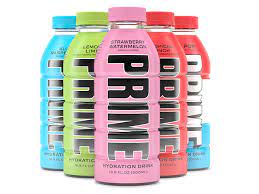
Prime Hydration
